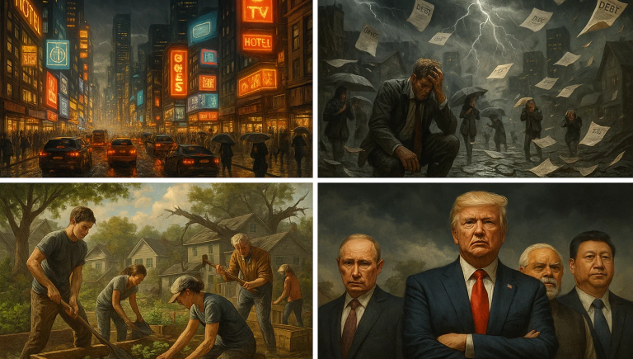
All things tend toward excess. All things must recalibrate. Excess and recalibration are the universal rhythm of existence. From atoms to empires, from stars to souls, the pattern is the same: excess, collapse, renewal. We are not living through a moment of random chaos. We are living through a global polycrisis, where every excess of the past century is now demanding recalibration. Welcome to the world disorder of 2025.
In This Article
- What is a global polycrisis and why does it matter?
- How today’s “firefly” events reveal deeper structural shifts.
- Why excess in politics, finance, and climate demands recalibration.
- How Braudel’s cycles help us decode chaos instead of drown in it.
- Why renewal and cooperation remain possible even in disorder.
Continue Reading — Free Membership
InnerSelf is a community of real people — not bots, not algorithms.
Register free to read this article and access our full 25,000-article archive.
No credit card. No spam. Just InnerSelf.
